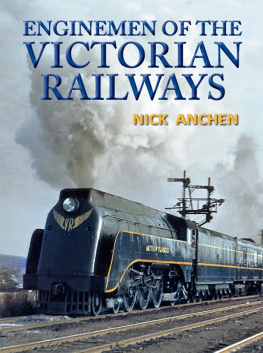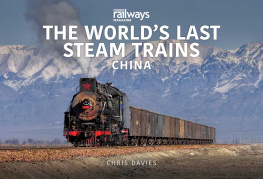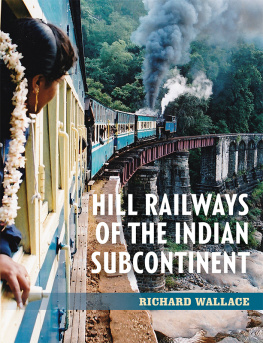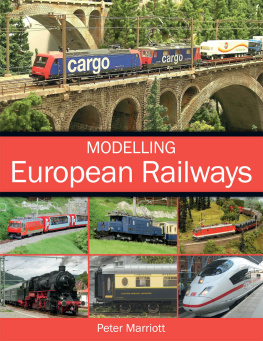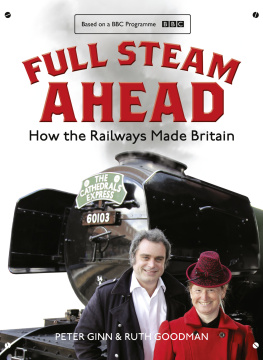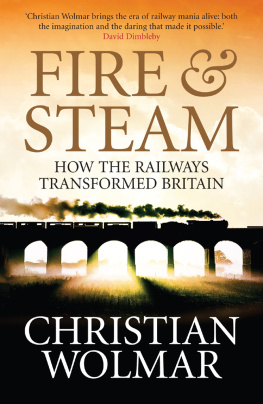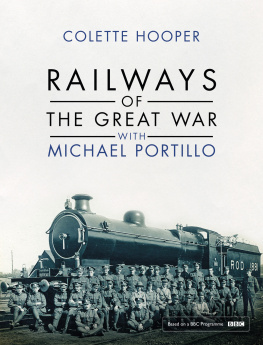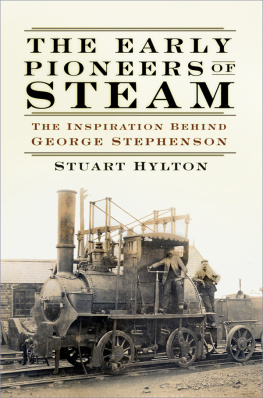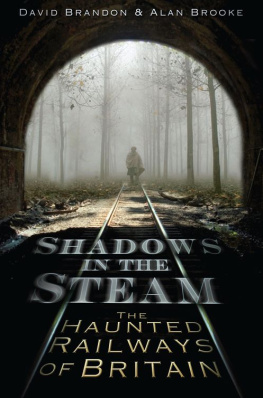BARRY LUHRS
Barry Luhrs spent a decade at Wodonga in the states north east, and has fascinating memories of firing K class locomotives on the Cudgewa line, one of Victorias most spectacular and potentially dangerous branch lines. The story of Barrys horrendous first day as a fireman would be difficult to beat.
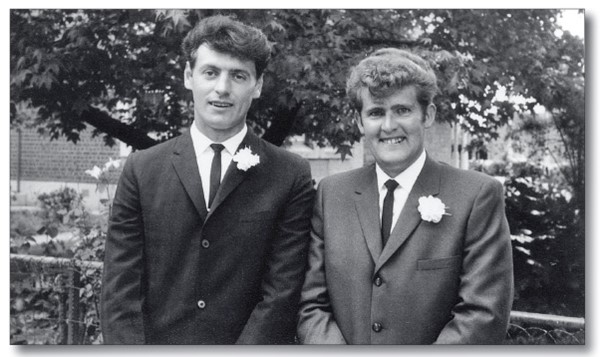
Barry Luhrs (left) and Bob Murray on Bobs wedding day in 1965 Barry was the best man.
It was Bob who introduced Barry to the Victorian Railways, as well as pointing out a pretty lady working at Andersons record shop in Wodonga, a wedding being the result soon after.
In 2011, both Barry and Bob are still on the job Bob as station master at Kilmore East and Barry as a suburban train driver at Mordialloc depot and having seen many changes since the VR days of old, both men are contemplating retirement. ~ Barry Luhrs collection
In 1964 I was working as a carpet salesman when I was introduced to a bloke called Bob Murray, who was a conductor on passenger trains. He was getting more money than me and picking up more women than me, so thats why I decided to join!
I applied for a job on the Victorian Railways, hoping to become a passenger train conductor. There were no vacancies at the time for conductors, but I had another mate who had become a locomotive fireman and he told me what a good job it was, so I took a job as a fireman instead, thinking that if I didnt like it, Id be able to transfer to another job within the railways at a later date. No conductor vacancies ever came up however, and I made a career on the footplate. I went to Benalla for four weeks of classes. I spent one week with an instructor driver, then I qualified as a fireman and was sent to Wodonga, which was a good thing, as I lived in Albury.
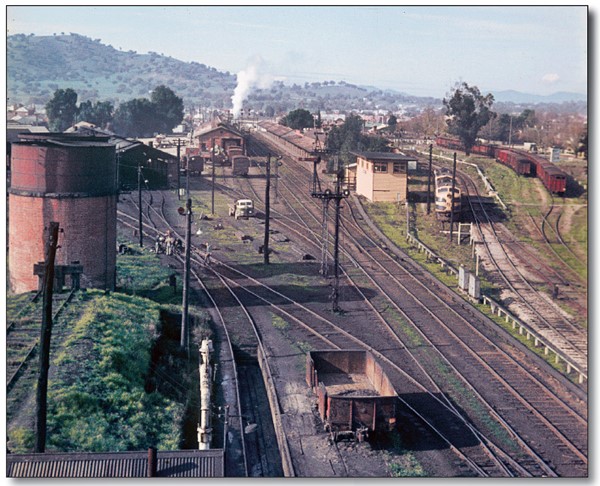
Wodonga Station area in the early 1960s. ~ Ron Kain, Lindsay Rickard collection
BAPTISM OF FIRE
I arrived at Wodonga, and was told that my first job would be to fire the Cudgewa goods the next morning, at the ungodly hour of 1 am. In these times, both steam and diesel locomotives were used on the Cudgewa run, either a K class steam or T class diesel, and a diesel was scheduled for the next days run. Being a young bloke I was a bit casual back then, and wasnt used to getting up so early, having been a salesman working nine to five, so it was a bit of a shock to the system. I knew I had a 1 am sign on but, like a fool, I set my alarm clock for 1 am instead of midnight. The alarm went off and I got up and stumbled around and had a bit of a wash and made a cup of coffee. Then I looked at the clock and thought, hang on, what the hells wrong with this clock? And then it hit me. I made a quick call to the night depot chargeman at Wodonga and tried to explain myself, but he interrupted me and said, Well, you may as well go back to bed. The trains long gone, the shed firemans doing your job. Come in at 8 oclock and report to the depot foreman.
So I was thinking, oh no, my first day and Ive stuffed up, maybe Ill get the sack. So I got on my bicycle and rode to work at 8 in the morning, and the first thing I noticed was that a GY wagon had been shunted down over the buffers and right into the car park, and some poor bugger had the front of his car smashed in. It was right where I would have parked too, had I had a car. Then as I walked up to the office, I noticed two diesel locos off the rails right outside the office door, and a gang were busy trying to get them back onto the track. The depot foreman, Mr. Simpson, was having a bad morning. I walked up to him sheepishly and stammered, Oh...ah...good morning Mr. Simpson. I was supposed to have been on the 1 am Cudgewa goods this morning, and Im terribly sorry but I made a mistake with the alarm clock... But he was in no mood for this. He just turned around and yelled, Piss off, cant you see Im busy. He was a gruff old bastard but he was a good old bloke. Then he said, Go inside and make yourself bloody useful. Clean up, sweep the floor, clean the hand basin and clean out the fireplace. Yes sir, oh yes sir, I said.
So into the loco standby room I went and I was working away, doing everything he told me, and then in he came and he looked at me and I thought, gee, Im really going to cop it now, but he said, Hey you, and I said, Ah...what...me?, Yeah you, you were supposed to be on that 1 am Cudgewa this morning? And I said, Yes, but I made a mistake about the alarm clock, I set it for..., but he just waved his hand and said, Oh, dont worry about that now. Go over and help those blokes load the gear into the breakdown van and you can go with them and help clear the derailment. And I said, Oh, God is there another derailment somewhere?, and he said, It was your Cudgewa train. It ran away down the hill past Shelley. My first thought was, hows the driver and fireman? The crew are all right, he said, just a bit shook up and bruised.
All of a sudden I was very grateful for sleeping in! There were several runaways during these times, as most of the trains were made up of GY wagons full of superphosphate fertiliser, or cement for the Snowy Mountains scheme. They were very heavy, and often had poor brakes.
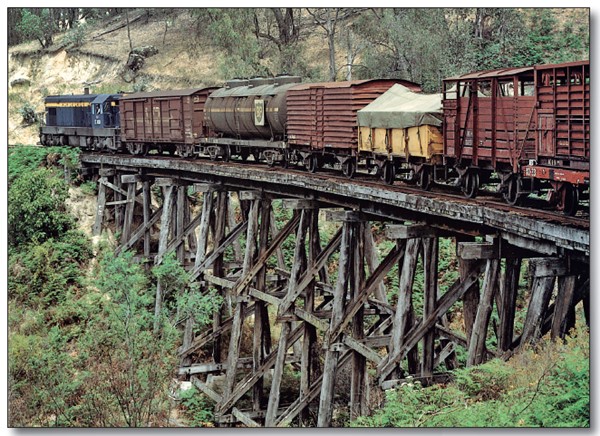
In January 1978, T413 leads a Cudgewa to Wodonga goods downhill towards Bullioh, across one of the spectacular timber bridges for which the line was renowned. ~ Neville Gee
These trains were running almost seven days per week. The K class had good air compressors and could usually keep enough air up, but the T class compressors were inadequate. We applied handbrakes at Shelley heading in both directions. We took them off at Beetoomba on Down trains and at Bullioh on Up trains. This was why T413 with the dynamic brake was sent to Wodonga, because we had so many runaways, and this improved things a lot. When driving the K, the drivers would use the independent brake, then the train brake, then the independent brake, then the train brake, to try and give the air compressor a chance to recharge the brake pipe, but they were never quite good enough, and the brakes themselves werent good enough either. With some of the runaways, the brake blocks had got so hot theyd turned blue.
So off I went to help the blokes load the hydraulic jacks and chains into the breakdown van, along with water and food. We all piled into this van, which was full of all sorts of things like big bags of water and all the equipment, and before long we were clattering out of Wodonga. The crew in the van quickly got down to business cooking a huge breakfast on the stove. Life was magnificent!
We ran along through the Victorian countryside, past the Hume Reservoir. The men made coffee, and cooked eggs and bacon, and potatoes and sausages and I thought, this is great, but as one bloke explained to me, Look, you need your energy, its going to take us a few hours to get up the mountain, and it might take us all day and maybe all night to get the train back on. Then after breakfast, the men said, Right, clear the decks, were going to play cards. I said, Oh, I dont know how to play cards, and they said, Well, youre a fireman, you need to learn how to play cards; its the firemans duty to carry the billy and the cards. So they gave me a crash course in euchre, and because I was a beginner they let me win. I thought, oh this is great, I love this job.

